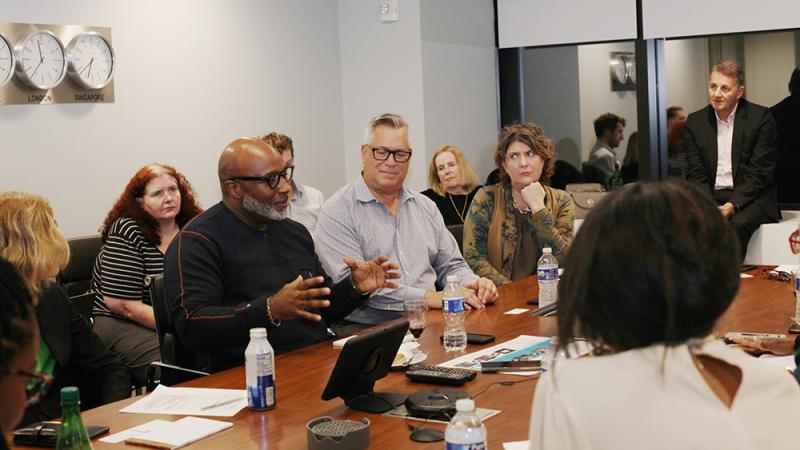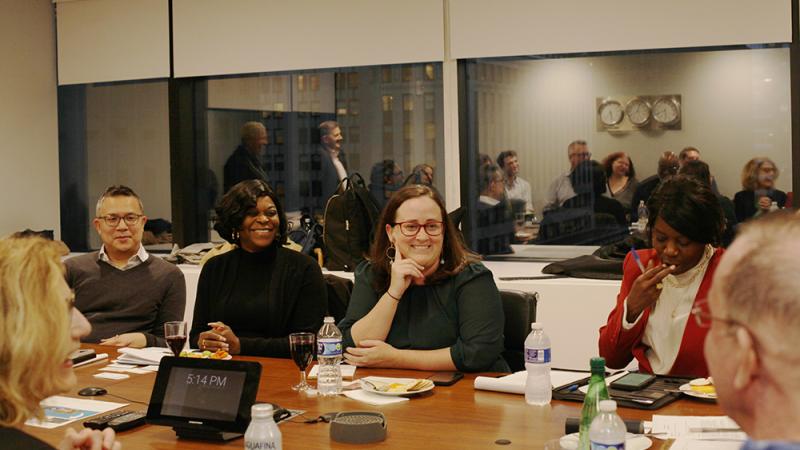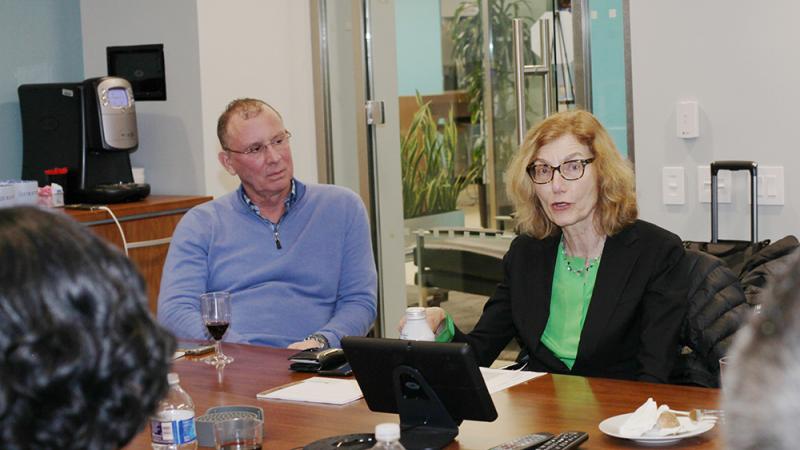In February, Questex—the publishers of Meeting Spotlight—partnered with Development Counsellors International (DCI) to create and host a roundtable discussion on diversity, equity, inclusion (and belonging) in the meeting and incentive industry. The roundtable was moderated by Nkechi Olisemeka Mitchell, senior account director at DCI.
One topic that was particularly interesting is the potential by organizations and individuals to not look beyond the first letter of DEI. As Josh Adams, VP of sales, streamlinevents inc., said, “You really need all three of those legs on the stool in order to make it work. We often talk about a lot of focus on diversity, but not really often on enough on equity and inclusion.”
To truly become an open and accepting company/environment, one must look at all three pillars of DEI, and not solely focus on the first component, diversity. And, to go even further, members of the roundtable agreed that a fourth component, “belonging,” should be listed alongside the other three—fully, DEIB.
“Belonging has always been [part of] the discussion,” said Jason Dunn, executive director, National Coalition of Black Meeting Professionals. “Belonging is: Are you a part of table when the strategic plans are being created?” As he puts it, diversity is roughly as it seems: Is your organization diverse and are there diverse groups represented in your community/industry. Equity is a matter of having the same budget and spending power as your peers. Inclusion is about having the same power and authority as your peers. Belonging is being a part of the conversation.

So, looking beyond the “D,” equity is next in the DEIB acronym. This usually equates to fair compensation and the allocation of available resources, especially when considering disadvantaged groups and people’s unique circumstances. As Dunn put it, it’s a matter of purchasing power, while Adams similarly added that it’s about access to the same tools.
It's also important to focus on all components of DEIB because sometimes you can only work with what you have. So, for instance, Dave Jefferys, CEO/executive director, LGBT Meeting Professionals Association, says, “I have an LGBT membership and that crosses so many areas, and I can't always be diverse when I want to be diverse ... but I can always be inclusive.”
By that he means, membership is open to all who wish to join. He can’t always ensure it’s a diverse crowd, but by being inclusive and by creating a welcoming/belonging atmosphere, the diversity can come. To help become a more diverse organization, however, LGBT Meeting Professionals Association is allocating 100 percent of its education budget in 2023 to trans issues.
In recent years, Jefferys says he’s been hearing more and more about the “T” in LGBT—something he admitted to previously knowing less about than the first three letters of the acronym. “Then we had a board member who was trans, and then we had more committee members that were trans. Now, we are learning. These are real people, and they are a very small part of the LGBT community, but they still are part of it … so, as the executive director, I have responsibility to raise awareness for them.”
It's also important to look past some of the “obvious” aspects of diversity and inclusion, such as sex and race. “Invisible disabilities,” which includes people with chronic illness, hearing or vision loss and more, must also be considered. Adams also noted his company is investing in redesigning its website so that people with visual impairments can more easily read and navigate the pages.
“If we're going to talk about bringing everybody to the table and making them feel that they're welcome at the end of the day, that's what we have to do at all levels,” said Adams.

Deborah Dickerson, chief operating officer, East West Connection, Inc., said, “That's one thing I'm really proud about with our company—we are very focused on looking out for people who have a disability. Because again, when we think about inclusion, we don't really think about that perspective. But if we're intentional about it, then we're going to start thinking about those things.”
She added: “We have to consider those that have disabilities that are still able to perform the job of a meeting planner or on-site. I often think that that particular community’s overlooked when talking about DEI.”
That all said, it’s important not to lose focus on the diversity aspect—because all these components are intertwined, after all. Can a person feel included if they don’t feel represented? Can a group belong among its peers if it isn’t equitable?
As Devin Lewis, VP of sales and business development, Bermuda Tourism Authority, put it: “It's important that there is representation because when someone sees me in the role that I'm in, to them, it's inspiring. They want to hear my story, ‘How did you get there? And what was your path?’ And it sparks conversation.”
She added, “If there's no representation, it makes it even harder to get people to buy into ‘hospitality is a great place to work.’”
At the same time, it’s not about tokenism. Chris Achacoso, associate director, Americas, BESydney, says, “Almost every Australian event that I've been to, there's always some sort of acknowledgment of country, that this was indigenous land … But I've actually had a tough conversation with people in Sydney and ask at what point is that performative?”
If the indigenous tribes are present only to perform a ritual and be present, but don’t actually have a seat on the table, then it’s only lip service, said Achacoso.
Intentionality was another theme. This can mean Jefferys efforts to include more trans people within his organization; it can also mean “Future 400,” which is a project developed by the Netherlands Ministry of Economic Affairs and Climate, alongside the Netherlands Board of Tourism & Conventions. This concept aligns where the country wants to be in terms of diversity and inclusion, as well as apologizing for and repairing any damages it has caused in the past, accidentally or not. At the same time, the tourism board, Antonia Koedijk, director, North America, Netherlands Board of Tourism & Conventions, explained, is marketing specifically towards the audience it feels will want to be part of this conversation—both for leisure travelers and meeting planners.
“We want to resonate with the openness and inclusivity of our visitors as well, so that they blend in nicely and that they help us communicate that message,” said Koedijk.

Another example of intentionality was brought up by Kelly Gallagher, CEO and co-owner, Canvas Meetings. She had recently planned an event in Minneapolis; here, they had found a vegan restaurant that was owned by a man who had been falsely accused of a crime and spent time in prison. When he got out, he started the restaurant and had never done an event before, but Canvas Meetings worked with him to make it happen.
Knowing their dollars make a difference, Canvas Meetings intentionally found a business that would benefit, perhaps proportionately more than another, by hosting an event there. Even better: Attendees still talk about the experience at events, Gallagher reported.
“At the end of the day, corporate companies have to have a meeting, and sometimes that money is blind to what is happening around the world, and it just has to happen,” noted Adams. “So, you take that situation and make the best that you can out of it. Just take one step, whatever that step is, there is always a positive step.”
In the end, the core components of DEIB align with the core values of the hospitality industry. “For those who are really in that space, who really take the time to address all three of those pillars to make and create that space where people feel welcome is truly the definition of hospitality When we get right down to it, it’s ‘How do we create those environments in which people feel safe to come to work, to attend, to speak out, to feel like they're heard?” said Adams.
He added: “Do they feel like they're part of a community where they are valued? And do they have access to those tools, the budgets, the money to equally to be able to feel like they're contributing at the same level as everybody else?”
Related Stories
Majority of Business Travelers Not Happy to Be Traveling Again
Event Leaders Exchange Debuts DEI Initiatives for Event Pros